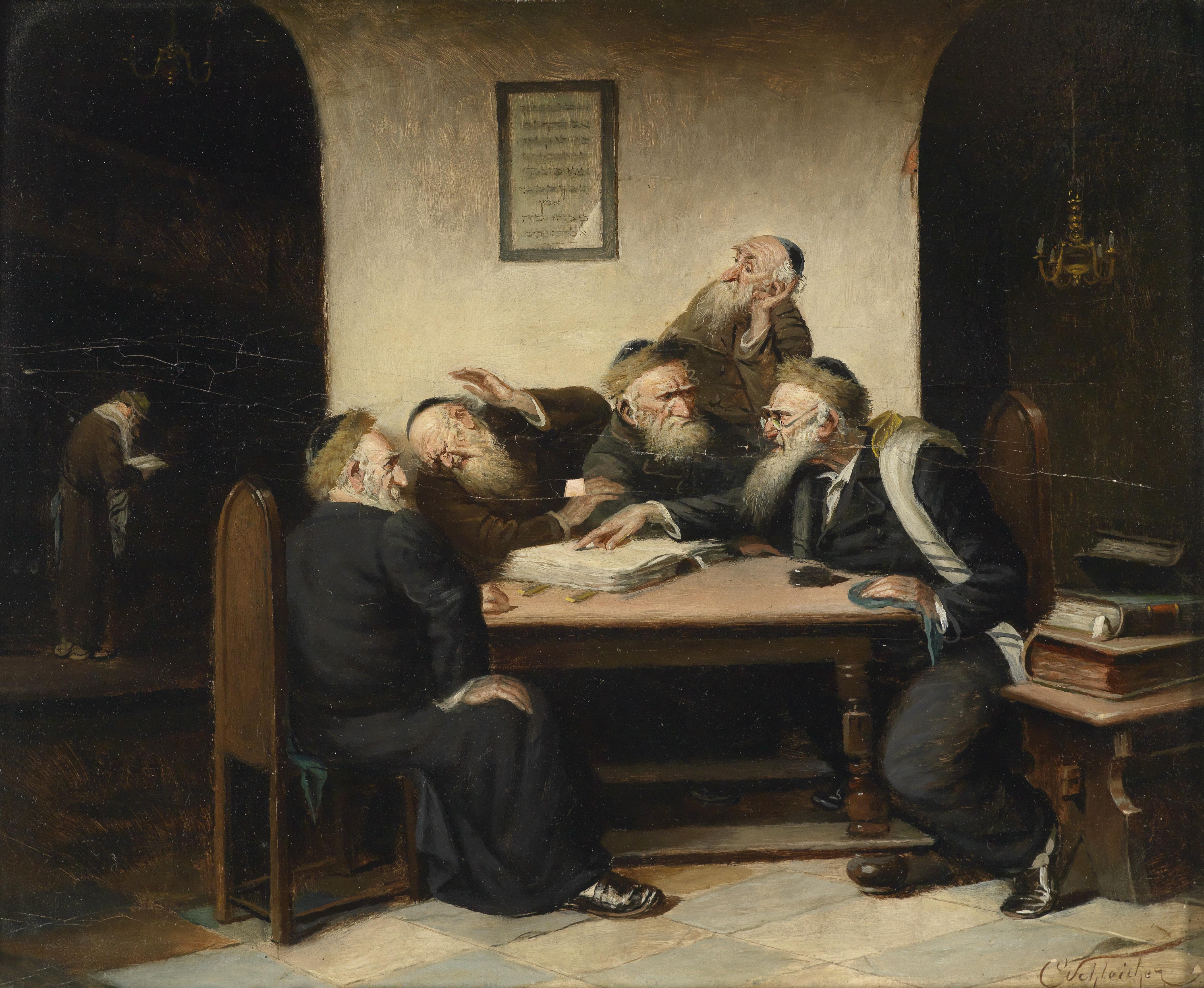|
Controversy
Controversy (, ) is a state of prolonged public dispute or debate, usually concerning a matter of conflicting opinion or point of view. The word was coined from the Latin '' controversia'', as a composite of ''controversus'' – "turned in an opposite direction", and also means an exercise in rhetoric practiced in Rome. Legal In the theory of law, a controversy differs from a legal case; while legal cases include all suits, criminal as well as civil, a controversy is a purely civil proceeding. For example, the Case or Controversy Clause of Article Three of the United States Constitution ( Section 2, Clause 1) states that "the judicial Power shall extend ... to Controversies to which the United States shall be a Party". This clause has been deemed to impose a requirement that United States federal courts are not permitted to cases that do not pose an actual controversy—that is, an actual dispute between adverse parties which is capable of being resolved by ... [...More Info...] [...Related Items...] OR: [Wikipedia] [Google] [Baidu] |
Case Or Controversy Clause
The Supreme Court of the United States has interpreted the Case or Controversy Clause of Article III of the United States Constitution (found in Art. III, Section 2, Clause 1) as embodying two distinct limitations on exercise of judicial review: a bar on the issuance of advisory opinions, and a requirement that parties must have standing. In this context, "controversy" means an actual dispute between the parties. Summary First, the Court has held that the clause identifies the scope of matters which a federal court can and cannot consider as a case (i.e., it distinguishes between lawsuits within and beyond the institutional competence of the federal judiciary), and limits federal judicial power only to such lawsuits as the court is competent to hear. For example, the Court has determined that this clause prohibits the issuance of advisory opinions (in which no actual issue exists but an opinion is sought), and claims where the appellant stands to gain only in a generalized s ... [...More Info...] [...Related Items...] OR: [Wikipedia] [Google] [Baidu] |
Mootness
The terms moot, mootness and moot point are used both in English law, English and in American law, although with significantly different meanings. In the Law of the United States, legal system of the United States, a matter is "moot" if further legal proceedings with regard to it can have no effect, or events have placed it beyond the reach of the law. Thereby the matter has been deprived of practical significance or rendered purely academic. The U.S. development of this word stems from the practice of moot courts, in which hypothetical or fictional cases were argued as a part of legal education. These purely academic settings led the U.S. courts to describe cases where developing circumstances made any judgment ineffective as "moot". The mootness doctrine can be compared to the ripeness doctrine, another court rule (rather than law), that holds that judges should not rule on cases based entirely on anticipated disputes or hypothetical facts. These rules and similar doctr ... [...More Info...] [...Related Items...] OR: [Wikipedia] [Google] [Baidu] |
HPV Vaccine
Human papillomavirus (HPV) vaccines are vaccines intended to provide acquired immunity against infection by certain types of human papillomavirus. The first HPV vaccine became available in 2006. Currently there are six licensed HPV vaccines: three bivalent (protect against two types of HPV), two quadrivalent (against four), and one nonavalent vaccine (against nine) All have excellent safety profiles and are highly efficacious, or have met immunobridging standards. All of them protect against HPV types 16 and 18, which are together responsible for approximately 70% of cervical cancer cases globally. The quadrivalent vaccines provide additional protection against HPV types 6 and 11. The nonavalent provides additional protection against HPV types 31, 33, 45, 52 and 58. It is estimated that HPV vaccines may prevent 70% of cervical cancer, 80% of anal cancer, 60% of vaginal cancer, 40% of vulvar cancer, and show more than 90% effectiveness in preventing HPV-positive orophary ... [...More Info...] [...Related Items...] OR: [Wikipedia] [Google] [Baidu] |
Article Three Of The United States Constitution
Article Three of the United States Constitution establishes the judicial branch of the U.S. federal government. Under Article Three, the judicial branch consists of the Supreme Court of the United States, as well as lower courts created by Congress. Article Three empowers the courts to handle cases or controversies arising under federal law, as well as other enumerated areas. Article Three also defines treason. Section 1 of Article Three vests the judicial power of the United States in "one supreme Court", as well as "inferior courts" established by Congress. Section 1 authorizes the creation of inferior courts, but does not require it; the first inferior federal courts were established shortly after the ratification of the Constitution with the Judiciary Act of 1789. Section 1 also establishes that federal judges do not face term limits, and that an individual judge's salary may not be decreased. Article Three does not set the size of the Supreme Court or establish specific p ... [...More Info...] [...Related Items...] OR: [Wikipedia] [Google] [Baidu] |
Advisory Opinion
An advisory opinion of a court or other government authority, such as an election commission, is a decision or opinion of the body but which is non-binding in law and does not have the effect of adjudicating a specific legal case, but which merely legally advises on its opinion as to the constitutionality or interpretation of a law. The International Law Association is one such commission that provides non binding opinions and advisory documents regarding aspects of international law. Some countries have procedures by which the executive or legislative branches may refer questions to the judiciary for an advisory opinion. In other countries or specific jurisdictions, courts may be prohibited from issuing advisory opinions. International courts International Court of Justice The International Court of Justice is empowered to give advisory opinions under Chapter IV of its Statute (an annex to the United Nations Charter) when requested to do so by certain organs or agencies of th ... [...More Info...] [...Related Items...] OR: [Wikipedia] [Google] [Baidu] |
Carl Schleicher Eine Streitfrage Aus Dem Talmud
Carl may refer to: *Carl, Georgia, city in USA *Carl, West Virginia, an unincorporated community *Carl (name), includes info about the name, variations of the name, and a list of people with the name *Carl², a TV series * "Carl", an episode of television series ''Aqua Teen Hunger Force'' * An informal nickname for a student or alum of Carleton College CARL may refer to: *Canadian Association of Research Libraries *Colorado Alliance of Research Libraries See also *Carle (other) *Charles *Carle, a surname *Karl (other) *Karle (other) Karle may refer to: Places * Karle (Svitavy District), a municipality and village in the Czech Republic * Karli, India, a town in Maharashtra, India ** Karla Caves, a complex of Buddhist cave shrines * Karle, Belgaum, a settlement in Belgaum ... {{disambig ja:カール zh:卡尔 ... [...More Info...] [...Related Items...] OR: [Wikipedia] [Google] [Baidu] |
United States
The United States of America (USA), also known as the United States (U.S.) or America, is a country primarily located in North America. It is a federal republic of 50 U.S. state, states and a federal capital district, Washington, D.C. The 48 contiguous states border Canada to the north and Mexico to the south, with the semi-exclave of Alaska in the northwest and the archipelago of Hawaii in the Pacific Ocean. The United States asserts sovereignty over five Territories of the United States, major island territories and United States Minor Outlying Islands, various uninhabited islands in Oceania and the Caribbean. It is a megadiverse country, with the world's List of countries and dependencies by area, third-largest land area and List of countries and dependencies by population, third-largest population, exceeding 340 million. Its three Metropolitan statistical areas by population, largest metropolitan areas are New York metropolitan area, New York, Greater Los Angeles, Los Angel ... [...More Info...] [...Related Items...] OR: [Wikipedia] [Google] [Baidu] |
Public Opinion On Climate Change
file:20210126 Peoples' Climate Vote - Public belief in climate emergency - United Nations Development Programme.svg, upright=1.3, ''Perception of seriousness:'' Results of a survey overseen by the United Nations Development Programme on belief in whether climate change presents a Climate crisis, climate emergency.● Survey results from: Fig. 3. ● Data re top emitters from: Public opinion on climate change is related to a broad set of variables, including the effects of sociodemographic, political, cultural, economic, and environmental factors as well as media coverage and interaction with different news and social media. International public opinion on climate change shows a majority viewing the crisis as an emergency. Public opinion polling is an important part of studying climate communication and how to improve climate action. Evidence of public opinion can help increase commitment to act by decision makers. (Page has download link to 68-page PDF.) Surveys and polling to ... [...More Info...] [...Related Items...] OR: [Wikipedia] [Google] [Baidu] |
Bounded Rationality
Bounded rationality is the idea that rationality is limited when individuals decision-making, make decisions, and under these limitations, rational individuals will select a decision that is satisficing, satisfactory rather than optimal. Limitations include the difficulty of the problem requiring a decision, the cognitive capability of the mind, and the time available to make the decision. Decision-makers, in this view, act as satisficers, seeking a satisfactory solution, with everything that they have at the moment rather than an optimal solution. Therefore, humans do not undertake a full Cost–benefit analysis, cost-benefit analysis to determine the optimal decision, but rather, choose an option that fulfills their adequacy criteria. Some models of human behavior in the social sciences assume that humans can be reasonably approximated or described as rationality, rational entities, as in rational choice theory or An Economic Theory of Democracy, Downs' political agency model.M ... [...More Info...] [...Related Items...] OR: [Wikipedia] [Google] [Baidu] |
Heuristic
A heuristic or heuristic technique (''problem solving'', '' mental shortcut'', ''rule of thumb'') is any approach to problem solving that employs a pragmatic method that is not fully optimized, perfected, or rationalized, but is nevertheless "good enough" as an approximation or attribute substitution. Where finding an optimal solution is impossible or impractical, heuristic methods can be used to speed up the process of finding a satisfactory solution. Heuristics can be mental shortcuts that ease the cognitive load of making a decision. Context Gigerenzer & Gaissmaier (2011) state that sub-sets of ''strategy'' include heuristics, regression analysis, and Bayesian inference. Heuristics are strategies based on rules to generate optimal decisions, like the anchoring effect and utility maximization problem. These strategies depend on using readily accessible, though loosely applicable, information to control problem solving in human beings, machines and abstract i ... [...More Info...] [...Related Items...] OR: [Wikipedia] [Google] [Baidu] |
Electronic Frontier Foundation
The Electronic Frontier Foundation (EFF) is an American international non-profit digital rights group based in San Francisco, California. It was founded in 1990 to promote Internet civil liberties. It provides funds for legal defense in court, presents ''amicus curiae'' briefs, defends individuals and new Technology, technologies from what it considers abusive legal threats, works to expose government malfeasance, provides guidance to the government and courts, organizes political action and mass mailings, supports some new technologies which it believes preserve Liberty, personal freedoms and online civil liberties, maintains a database and web sites of related news and information, monitors and challenges potential legislation that it believes would infringe on Liberty, personal liberties and fair use, and solicits a list of what it considers are Patent misuse, abusive patents with intentions to defeat those that it considers are without merit (law), merit. History Foundat ... [...More Info...] [...Related Items...] OR: [Wikipedia] [Google] [Baidu] |
Anchoring
An anchor is a device, normally made of metal, used to secure a Watercraft, vessel to the Seabed, bed of a body of water to prevent the craft from drifting due to Leeway, wind or Ocean current, current. The word derives from Latin ', which itself comes from the Greek language, Greek (). Anchors can either be temporary or permanent. Permanent anchors are used in the creation of a mooring (watercraft)#Permanent anchor mooring, mooring, and are rarely moved; a specialist service is normally needed to move or maintain them. Vessels carry one or more temporary anchors, which may be of different designs and weights. A sea anchor is a drag device, not in contact with the seabed, used to minimize drift of a vessel relative to the water. A drogue is a drag device used to slow or help steer a vessel Point of sail, running before a storm in a following or overtaking sea, or when crossing a bar in a breaking sea. Anchoring Anchors achieve holding power either by "hooking" i ... [...More Info...] [...Related Items...] OR: [Wikipedia] [Google] [Baidu] |




